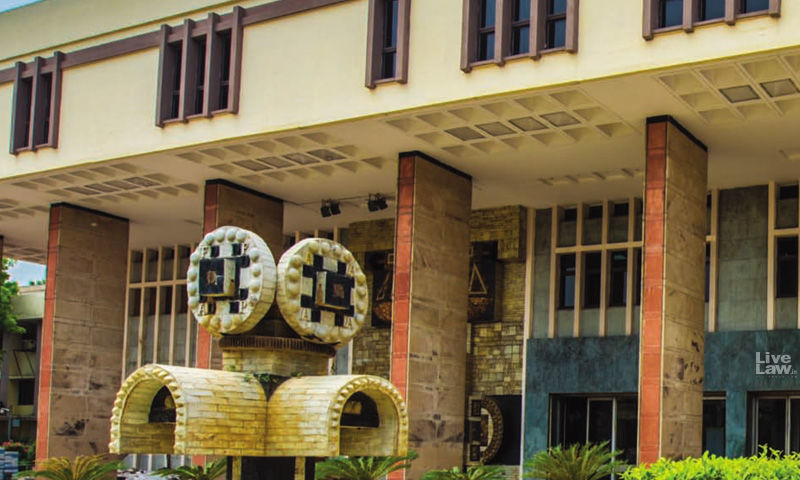
The Delhi High Court has observed that the Regional Labour Commissioner has limited powers in proceedings
The Delhi High Court has observed that the Regional Labour Commissioner has limited powers in proceedings under sec. 33C(1) of the Industrial Disputes Act, 1947 and cannot exercise adjudicatory powers to ascertain whether the benefits claimed were due in the first place or not.
Justice Pratibha M Singh was dealing with a petition challenging the orders dated 30th October 2019, 27th July 2020, and 20th August 2020 by which notice for recovery for a sum of Rs.1,95,980 and for attachment of property under Sections 136 and 139 of the Delhi Land Reforms Act, 1954, was issued to the Petitioner Management by the SDM, Delhi Cantt. and by the Regional Labour Commissioner (Central), Delhi.
It was the case of the Workman that the recovery of the said sum constitutes the amounts payable to him, towards Modified Assured Career Progression/ Assured Career Progression (MACP/ACP) on the ground that his reinstatement had been ordered and therefore, he ought to be deemed to have been in service as the termination was held void ab initio.
The claim of MACP/ACP benefits was allowed by the Regional Labour Commissioner under Section 33C(1) of the Industrial Disputes Act, 1947. Consequential orders were then passed for attachment and for recovery of the said amounts vide the impugned orders.
The Court noted that as per the applicable policy of the Management, the grant of MACP/ACP benefits was not automatic for all employees and was contingent upon satisfaction of certain specified criteria.
“The benefits of ACP/MACP in career progression, are usually granted to employees in order to avoid stagnation. Employees are permitted to take some exams/tests to avail of career progression and if they qualify for the same, MACP/ACP benefits are granted,”
the Court said.
The Delhi High Court asked for the requirements, the eligibility conditions, and the procedure
The Court noted further that a perusal of the OM dated 9th August 1999 showed that there were separate requirements for each of the group of employees to avail of ACP/MACP benefits. It said that there were various conditions as to which kind of employees were entitled to the said benefits.
“It also contemplates the setting up of a Screening Committee for the purpose of processing the cases for grant of benefits under the ACP scheme. The OM is quite detailed and clear and, therefore, it would not be apposite to argue or hold that grant of MACP/ACP benefits by the Management qua employees governed by this OM is automatic,”
the Court observed.
The Court said that the requirements, the eligibility conditions, and the procedure for such a grant having been prescribed, the same cannot be granted by merely reading it as part of ‘consequential benefits’ or ‘continuity of service’.
The Court further observed that in proceedings under Section 33C (1) of the ID Act, the RLC has limited powers and cannot exercise adjudicatory powers to ascertain whether the benefits claimed were due in the first place or not.
“The RLC in this case, as the Recovery Officer, was only dealing with the implementation of the award as granted by the ld. Single Judge on 17th April, 2012, and was not adjudicating the question as to whether the Workman was entitled to MACP/ACP benefits,”
the Court observed.
The Court concluded that as per the Management’s policies, various conditions were to be satisfied for grant of MACP/ACP benefits, including a trade test which had to be passed. Thus, these benefits could not have been granted as a matter of right, without the workman having undergone the said test/satisfied the prescribed criteria.
“The RLC could not have gone into such complex issues while passing the impugned orders under Section 33C(1) of the ID Act, as the jurisdiction of the RLC is limited to awarding ‘amounts due’. The ACP/MACP benefits would not constitute ‘amounts due’ in the facts and circumstances of the present case, especially in view of the order of the ld. Single Judge dated 17th April, 2012,”
the Court said.
Accordingly, the Court set aside the recovery certificates and attachment orders.
Title: M/S GARRISON ENGINEER (CENTRAL), DELHI CANTT v. M.J. PRASAD & ORS.
Citation: 2022 (Del) 217
